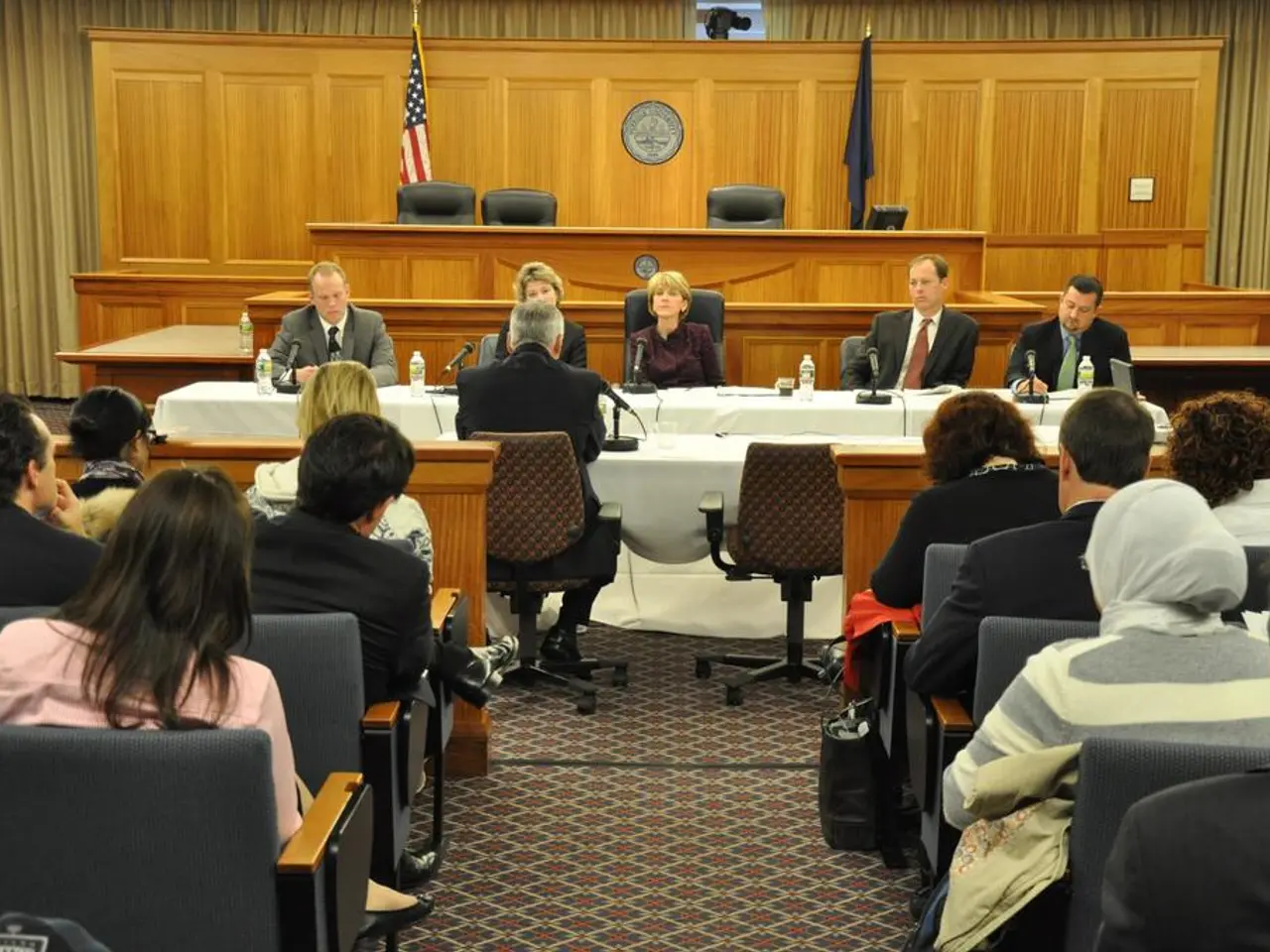City Council Leader Sharply Condemns: "Municipal Perspective is Heading in a Wrong Direction"
Dortmund City Council's Anti-Far Right Resolution: Legal and Political Implications
In a move aimed at distancing itself from far-right parties, the Dortmund City Council passed a non-binding resolution titled "Declaration of the Council - We are the Bulwark" on February 13, 2025. The resolution commits the council to refrain from cooperating with parties deemed right-wing extremist or largely anti-constitutional, explicitly ruling out cooperation with the AfD faction and other right-wing populist or extremist groups.
The legality of this resolution has been a subject of debate, with some arguing that it could potentially violate the party privilege enshrined in the German Basic Law. However, a closer look at the constitutional jurisprudence reveals that a city council’s refusal to cooperate with far-right parties can be legally justified if based on evidence that these parties threaten constitutional values.
The party privilege under the Basic Law (Article 21) protects the existence and functional autonomy of political parties, including their participation in democratic processes and public bodies. This privilege means parties enjoy protection against arbitrary exclusion from political cooperation or discrimination by public authorities. However, this privilege is not absolute, and cooperation with parties that adopt or promote unconstitutional, anti-democratic, or extremist positions can be lawfully curtailed.
The Dortmund City Council’s resolution is likely legally permissible as a political measure against extremist far-right parties unless it imposes punitive exclusions beyond political cooperation. Any overreach could be challenged under party privilege protections, but democratic institutions retain the right to refuse cooperation with parties undermining constitutional principles.
The resolution must not deny far-right parties access to public resources or electoral participation outright, which would constitute an unconstitutional sanction. The refusal to cooperate can serve as a political statement differentiating democratic governance from extremist ideologies. If challenged, courts would review whether the council's resolution respects constitutional limits, balancing party privilege with the protection of democratic order.
The AfD faction, which was the target of the resolution, has viewed it as an "anti-democratic intrigue" aimed at improving the re-election chances of Dortmund Mayor Thomas Westphal. The Arnsberg district government has also planned to investigate indications of a violation of legal provisions regarding Dortmund's mayor's refusal to comply with an instruction. A Dortmund citizen has also filed a complaint with the Arnsberg regional government, questioning whether the resolution violates the party privilege enshrined in the Basic Law.
The Arnsberg district government has provided a ruling of the VG Düsseldorf on a parallel case in the city of Kaarst from 2022, which was decisive in the evaluation of the Dortmund council resolution. The Dortmund CDU has reaffirmed its local "firewall" between itself and the AfD. The council must reconsider the resolution in its next meeting if the supervisory authority raises an objection against it.
It is worth noting that the principle of equal opportunities only applies to parties in political competition, not to the voting behavior of individual council members. The resolution does not have any legally binding effect on the AfD faction.
The debate over the Dortmund City Council's resolution reflects the broader tension in German politics between democratic values and far-right extremism. As German cities continue to grapple with this issue, the legal and political implications of such resolutions will undoubtedly remain a topic of interest and discussion.
[1] "The Constitutional Court's Decision on the AfD: A Turning Point in German Constitutional Law?" Verfassungsblog, 24 January 2020, https://verfassungsblog.de/the-constitutional-court-s-decision-on-the-afd-a-turning-point-in-german-constitutional-law/
[2] "Germany's Constitutional Court Bans the Far-Right AfD Party from Parliaments," The Guardian, 2 March 2023, https://www.theguardian.com/world/2023/mar/02/germany-constitutional-court-bans-far-right-afd-party-from-parliaments
- The ongoing debate about the Dortmund City Council's resolution against far-right parties underscores the importance of policy-and-legislation in shaping politics, as it explores the legal and political implications of legislative measures aimed at countering extremist ideologies.
- The general-news regarding the resolution's legality, the reaction from the targeted AfD faction, and potential investigations by the Arnsberg district government highlights the significant role of politics and legal conflict in governing efforts to combat far-right parties.








